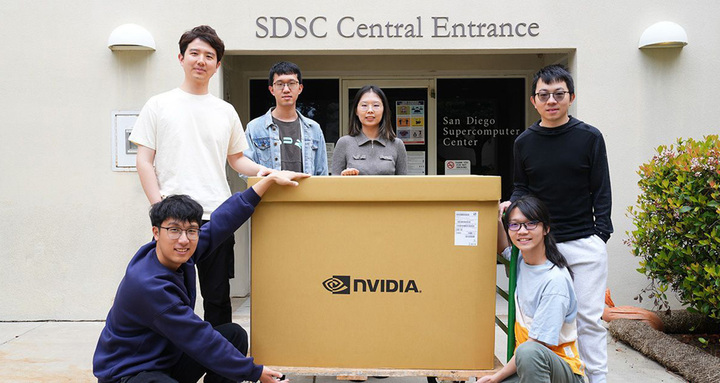
The Hao AI Lab research team at the University of California San Diego — at the forefront of… Read Article

The Hao AI Lab research team at the University of California San Diego — at the forefront of… Read Article
Five finalists for the esteemed high-performance computing award have achieved breakthroughs in climate modeling, fluid simulation and more with the Alps, JUPITER and Perlmutter supercomputers — with two winners taking… Read Article
Where CPUs once ruled, power efficiency — and then AI — flipped the balance. Extreme co-design across GPUs, networking and software now drives the frontier of science…. Read Article
At SC25, NVIDIA unveiled advances across NVIDIA BlueField DPUs, next-generation networking, quantum computing, national research, AI physics and more — as accelerated systems drive the next chapter in AI supercomputing…. Read Article
Across quantum physics, digital biology and climate research, the world’s researchers are harnessing a universal scientific instrument to chart new frontiers of discovery: accelerated computing. At this week’s SC25 conference… Read Article
To power future technologies including liquid-cooled data centers, high-resolution digital displays and long-lasting batteries, scientists are searching for novel chemicals and materials optimized for factors like energy use, durability and… Read Article
NVIDIA Apollo — a family of open models for accelerating industrial and computational engineering — was introduced today at the SC25 conference in St. Louis. Accelerated by NVIDIA AI infrastructure,… Read Article
The race to bottle a star now runs on AI. NVIDIA, General Atomics and a team of international partners have built a high-fidelity, AI-enabled digital twin for a fusion reactor… Read Article
The future of AI took flight at Starbase, Texas — where NVIDIA CEO Jensen Huang hand-delivered the first DGX Spark to Elon Musk, chief engineer at SpaceX. Amid towering engines… Read Article